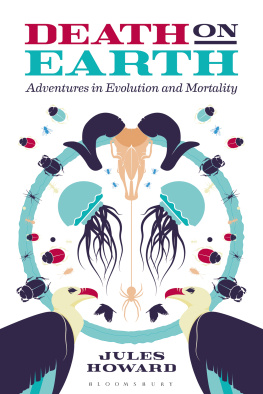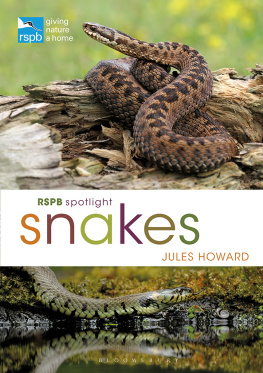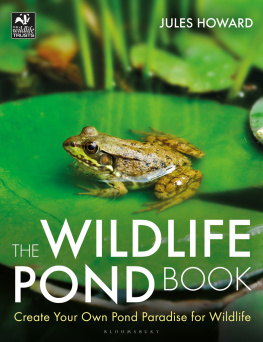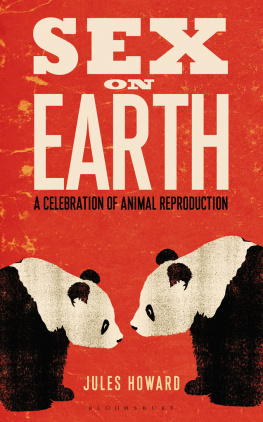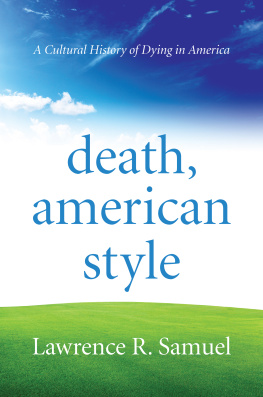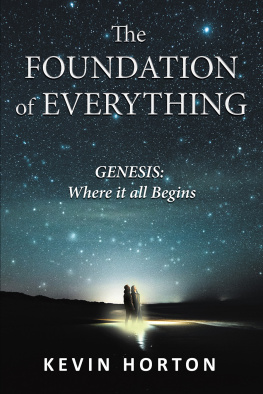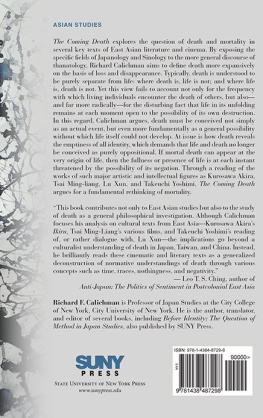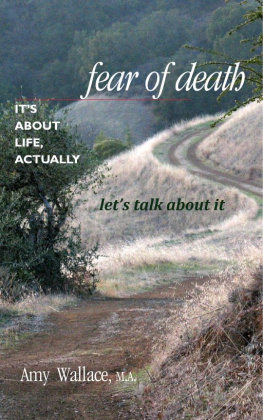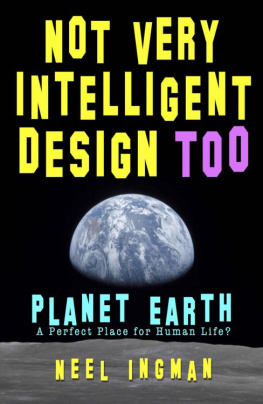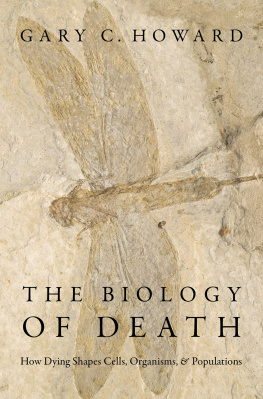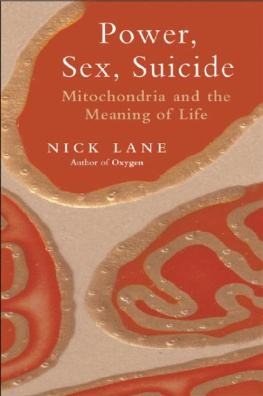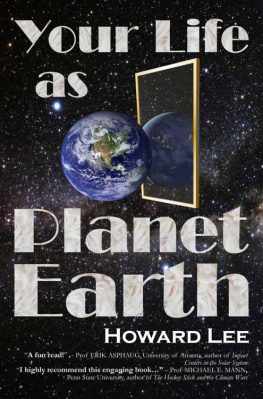DEATH ON EARTH
Also available in the Bloomsbury Sigma series:
Sex on Earth by Jules Howard
p53 The Gene that Cracked the Cancer Code by Sue Armstrong
Atoms Under the Floorboards by Chris Woodford
Spirals in Time by Helen Scales
Chilled by Tom Jackson
A is for Arsenic by Kathryn Harkup
Breaking the Chains of Gravity by Amy Shira Teitel
Suspicious Minds by Rob Brotherton
Herding Hemingways Cats by Kat Arney
Electronic Dreams by Tom Lean
Sorting the Beef from the Bull by Richard Evershed and Nicola Temple
For Lettie and Esme
DEATH ON EARTH
ADVENTURES IN EVOLUTION AND MORTALITY
Jules Howard

Contents
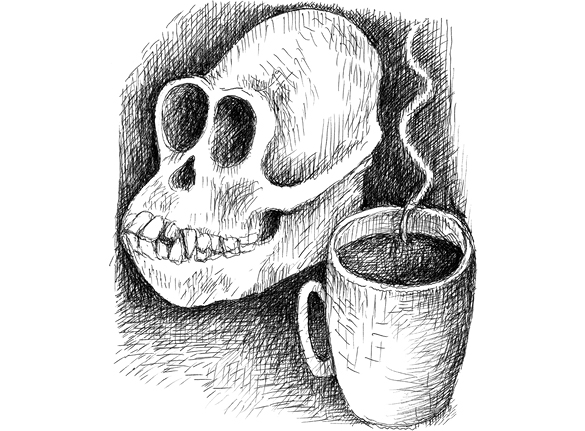
Neck ligaments. A cross-section of a trachea. An eyeball. In front of me is a white shelf filled with cylinders of varying sizes that contain a host of pickled parts. Swollen human hands, bleached spines and knee joints, some sort of sawn-off skull cap, brains in jars. This is not my usual day out. Some body parts are in cylinders, some in Perspex rectangular cubes; all are resting within some unknown embalming fluid that seems to bleach things in just the right nightmarish sort of way.
I walk to the next set of shelves. I stop. I sip my coffee and calmly put it back on its saucer. I realise I am shaking the teaspoon on my plate starts knocking rhythmically against the coffee cup like I am a tiny alarm clock. I am ringing, and people start to look my way. I try to gather myself. The irony is that I am genuinely a bit alarmed by all of this. The room is about the size of two tennis courts there is a good space in the middle, overlooked by two tiers of metal balconies that loom above us. The glass ceiling covers the hundred or so attendees to the event in a sepia glaze, as though were in a bizarre lucid dream from which we cant escape. For a century or more this enormous room was an operating theatre; thousands of medical procedures and post-mortems have been undertaken here. And it really was a theatre: the light from above, the balconies in tiers that would once have been home to hundreds of students, eager to perfect their science and their future trade. This is a strange place to be.
I am attending something called Death Salon, an American movement holding its first event in the UK. Its taking place here, at Barts Pathology Museum, just around the corner from the financial sector of the City of London. According to the blurb on the welcome pack in my hand, Death Salon is an event that brings together intellectuals and independent thinkers engaged in the exploration of our shared mortality by sharing knowledge and art. It had sounded really interesting, partly because I have always wanted to be an independent thinker. I am pleased to report that I have achieved this aim admirably. Here I am independently thinking about things like tracheae, intestines and tiny testicles bobbing up and down in a preservative solution. I am here for three whole days, I realise. Three whole days.
I look around at the other attendees there certainly is quite a mix of punters here, old and young. It is the first conference that I have attended for years where the gender bias is very female-heavy. This is a welcome change. Im struck by how many young people there are, too not just studious sorts, either. The style here isnt exactly preppie. Its something its something Ive never seen before. Many of the attendees have a kind of mortician chic . The men have so much style geek glasses are in, as are leather satchels and skinny jeans. Some wear pinstripe suits and trainers. I notice one man wearing bowling shoes and managing, inexplicably, to pull it off. And the women, too. Theres an air of burlesque about some: flowing curls, long clinging black dresses and black nail varnish. Many of them have fringes. Not for the first time in my life, I stick out like a sore thumb. I continue drinking my coffee, my little coffee spoon trilling like my beating heart.
My literary agent Jane was one of the people who had told me about Death Salon, and shes actually attending. I see her in the front row talking to another of her clients, a kind-looking lady who is here to give a presentation about her experiences of grief after the death of her mother. Just as the presentations are beginning I stumble down a row of chairs, heading to one of only a handful of empty ones at the far end. I catch Janes eye from the back of the room. She gives me a thumbs-up and looks at me gleefully. She mouths the words ISNT THIS WONDERFUL? from across the room. I give her a slightly saggy thumbs-up back. I find a seat and gather myself. Im here to write a book, Goddammit. Im here to begin my journey.
Everyone says not to start work on a book until its been commissioned. Only now do I realise why. Like Alice, Im falling into a rabbit hole from which Im struggling to escape if the book isnt commissioned, this is a journey I will end up making unpaid and my family will, for a few years, hate me for it. Jane and I are still waiting for the green light but, what the hell, Im starting anyway. Death, life and evolution seems like too interesting a topic to ignore any longer, and hopefully the book will be commissioned so everything is going to be ok, I think. Jim, my editor at Bloomsbury, has recently been giving me little supportive messages, but hes deeply worried that the whole death idea wont pan out. His normal friendly manner has become edgy of late; I can tell that hes worried that his colleagues wont go for it. One of Jims concerns is that he doesnt think a book will sell if it has Death in the title. But he has other worries One of which is that he doesnt think a book will sell if it has the word death on most pages. Jim has warned me that people dont like to think about death. And that people dont like to buy books about people that think about death. Jim doesnt like it when people dont buy books, which is why hes advised throughout NOT TO START THIS BOOK until its green-lit. Hes anxious. Thats ok, I tell him this book will be different. I wont be writing a clichd book about how DEATH IS NATURAL and that THERES NOTHING WE CAN DO ABOUT IT because people always say stuff like this and its all got a little patronising.
In human terms well, for me I hate thinking about death. I hate it. I havent written a will. I havent got a retirement plan. I have no health insurance. Plus, I have just discovered that I also have a surprise suppressed squeamishness about human body parts in flasks of alcohol. But I love nature. I love evolution and the myriad ways in which natural selection makes and creates things more incredible even than humans can imagine. I love the diversity. The variety. The varieties. I love the colour, the roles, the niches, the behaviours, the true stories, the magic, the wonder. Surely death plugs into these wonders? I had said to Jim. Surely death is the universal thing that awaits all of these things? I had pitched the idea a few weeks ago to him. Jim, I said. Jim, there is a story to tell about the impact that death has had on evolution, and on the niche-filled planet on which we find ourselves in the twenty-first century. I think there are miraculous acts that death imbibes into nature; acts that power it; acts that power its diversity. I want to chart this. I want to chart deaths impact on nature and evolution and look at it in the context of our own mortality.

